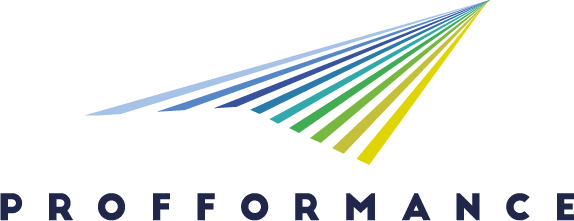SC
Sustainability Challenge
- 00 - Generic programmes and qualifications
- 01 - Education
- 02 - Arts and humanities
- 03 – Social sciences, journalism and information
- 04 – Business, administration and law
- 05 – Natural sciences, mathematics and statistics
- 06 – Information and Communication Technologies
- 07 – Engineering, manufacturing and construction
- 08 – Agriculture, forestry, fisheries and veterinary
- 09 – Health and welfare
- Other:
All fields of education are integrated in the interdisciplinary course-design.
4. Impact and mission with and for society
- Service-learning and active citizenship learning for impact in society
- Promoting social responsibility through teaching professional and ethical values
- Teaching through real social projects addressing society’s global challenges
- Promoting students' social entrepreneurship projects
- Joint practices with social partners and stakeholders of civil society for empower students to active citizenship
The Sustainability Challenge (SC) is a two-semester inter-university course involving students from a variety of disciplines. The Sustainable Development Goals (SDGs) accompany the learners as an overarching theme throughout the course. Students participate in one of two tracks: the Service Learning Track, where students work in transdisciplinary teams on socio-ecological questions posed by practice partners, such as private enterprises, ministries or nonprofit organizations. The Start-up Track supports students by developing and implementing their own start-up ideas. Teachers form six different universities and various theoretical backgrounds discuss sustainability concepts from multiple perspectives (economics, sociology, urban planning, architecture, arts, system sciences, climate science). Combined with the practical projects students have the opportunity to experience different learning environments and questions of sustainability situated in various contexts. This empowers learners to critically question existing structures and realities. Due to the close connection to social reality, the theoretically acquired knowledge can be applied in practice and own points of view can be developed. Problem solving and design skills are specifically promoted and enable students to develop key competences to face complex challenges of the future. Students are required to show initiative and interdisciplinary as well as critical thinking. During the whole course, students are supported by a dense support system, which consists of teachers who act both as academic project facilitators and as instructors in teaching blocks, start-up coaches who provide students with the necessary tools for sustainable entrepreneurship, practitioners who share their professional expertise and experiences, and the SC organizational team. The Sustainability Challenge (SC) learning environment allows for a continuous learning process and supports students in becoming change agents. Regular reflection on the acquired theoretical knowledge as well as the experiences from the implementation practice makes the continuous learning process visible and internalizes what has been learned. Working in interdisciplinary teams is a core element of the course. It requires a high degree of independence and promotes both organizational and communication skills.
Methodology
Tools, equipment, technology used
Outcomes and outputs, main results
Lessons learnt
Adaptability and sustainability of the best practice (for other institutions)
Promotion of best practice
Scope and impact
- Course/department level
- Faculty level
- Institutional level
- Cross-institutional level
- National level
6.1 Digitalization
- Innovative use of digital administration tools
- Digital skills development and assessment both general and profession-related, embedded in course design, in teaching and assessment
Reasoning: A customized application platform serves to collect and evaluate student’s applications. Based on project preferences, an algorithm-supported tool helps to compose interdisciplinary project teams. Teaching, course organization as well as intra-& inter-team communication and collaboration takes place in different settings (offline, online, hybrid). An online learning platform provides material and serves for basic communication. Project teams use a variety of tools to implement their projects.
6.2 Internationalization
- Developing students' multicultural awareness
- International projects/research results embedded into course development and T&L
Reasoning: All teaching as well as project activities evolve around the SDGs, which are in their core aware of multicultural issues and integrate a global perspective on sustainability challenges. The SC aims at fostering start-up activities with a global scope and orientation to development cooperation. Interdisciplinary teaching and guided reflection (considering cultural, political, historical, sociological and economic aspects) encourage students to illuminate their projects from multiple perspectives.
6.3 Inclusion and diversity, universal design
- Other:
Diversity and inclusion as project themes
Reasoning: When selecting practice partners or start-up ideas and determining the thematic focus of the projects, we consider aspects of diversity and inclusion. For example working together with socio-economic businesses, projects aiming at raising awareness for diversity in business practice or projects focusing on removing barriers for people to engage in SDG activities.
6.4 Sustainability
- Sustainability goals are addressed in the course(s)
- Special courses reflecting to UN 2030 Sustainability goals, Green Deal - mini-courses, microcredentials
- Social entrepreneurship projects, service-learning in the topic
- Environmental attitude, skill development and assessment either general or profession-related
- Sustainability aspects are considered in all phases of the learning practice - "hidden curriculum"
Reasoning: The SC is Europe’s largest inter-university service learning and start-up course focusing on the SDGs. From course design, to didactics and thematic orientation, the SC integrates sustainability on all levels and phases of the course. The transdisciplinary Service Learning as well as the start-up teams develop key skill sets while working and reflecting on their projects. We encourage students to question their mind-set and to realize their civic responsibility thus becoming change agents.
3.3 Public contact datas
| Name | Email address | Website |
|---|---|---|
| Christian Rammel | s-challenge@wu.ac.at | http://www.sustainabilitychallenge.at |

